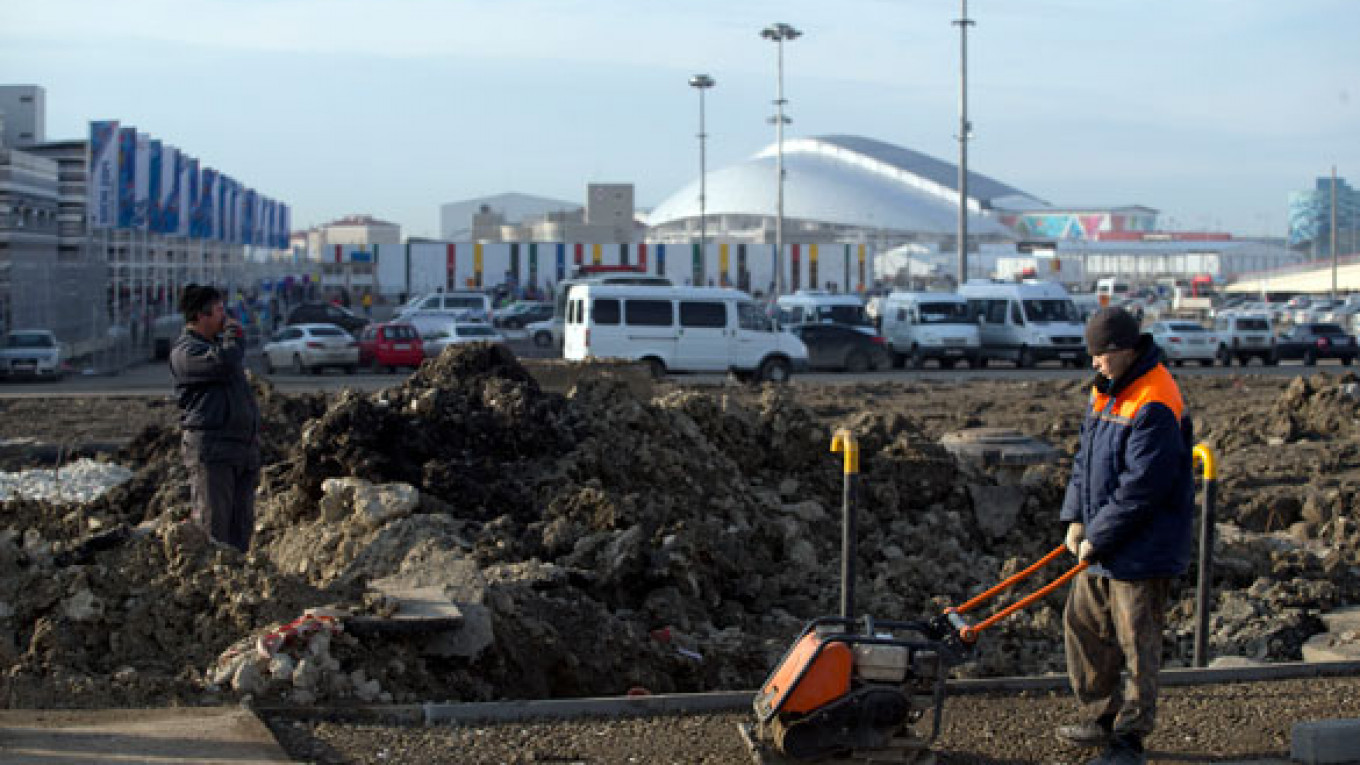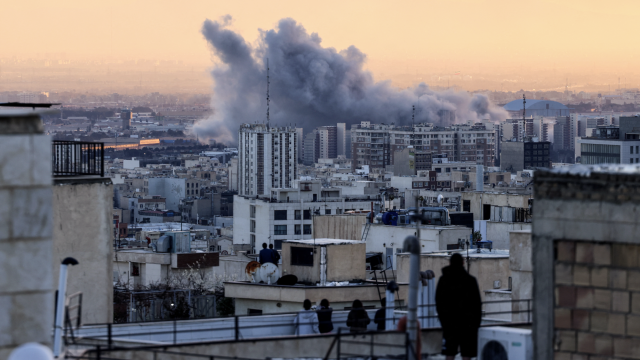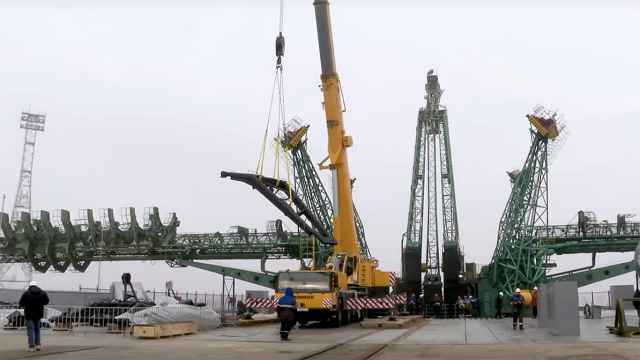SOCHI — With a week to go before the opening ceremony of the Sochi Winter Games, one would expect the Olympic Park to be filled with the bustle and buzz of arriving athletes, journalists and spectators.
What might be less predictable is the noise and tumult created by excavators, trucks and shovels.
The Olympics are almost here, but Sochi is not quite ready. Despite intense government pressure on organizers in recent months to put the finishing touches on the territories to be used for the Games, blemishes remain.
Chronic delays have afflicted Olympic construction almost from the start, and while all the venues have been declared complete, with their neon lights brightening the sky every evening, parts of the surrounding area still look like construction zones.
"The city is completely ready — a huge amount of work has been done," Sochi Mayor Anatoly Pakhomov told RT television on Wednesday. "The infrastructure is sound."
"Now we are putting on the final polish," he said.
Most of the roads that lead to the Olympic Park are full of mud, sand and other construction materials. An occasional cleaning car passes by trying to wash the dirt away, but then trucks full of gravel follow, making the cleanup efforts futile. Heavy rains in recent days have flooded many of the newly laid lawns, and recently planted trees look precariously set in the ground.
More serious infrastructure problems have afflicted nearby areas. The village of Mirny, adjacent to the Olympic Park, found itself in the middle of a foul-smelling emergency on Tuesday morning. Due to an electricity failure, something that has become a common occurrence in Sochi amid all the construction, the pipes were stopped up with sewage pouring into residential basements.
Local residents had already gotten used to this situation — many of them have their own pipes in case of emergency. In a show of self-organization, they even built a sewage system at their own expense, although now the local water company is demanding that they pay more to establish a permanent connection with the rest of the municipal system.
In central Sochi, there is plenty of unfinished construction as well. Investors from all over Russia have followed the Olympic rush, starting to build high-rise residential buildings on the waterfront. The development has changed the face of Sochi, but many of the buildings will not be finished before the Olympics.
Some of them are now covered with fake plastic facades in the fashion of a Potemkin village.
"Many people from Moscow, St. Petersburg and the Siberian towns have purchased apartments in Sochi, hoping for huge demand during and after the games," said Larisa Nukhalova, a local real estate agent.
While some large-scale developments such as Hyatt Regency Sochi, Pullman and Mercure saw strong interest, some others suffered from a lack of demand and it is unclear what will happen to many of the unfinished Miami-inspired high-rises after the Games are over.
Many residents are skeptical that demand will pick up post-Olympics and already predict that the half-finished concrete skeletons will become a permanent feature of the Sochi landscape.
"Even the already completed buildings stay empty," said Anastasia Krasnoshtan, a Sochi resident whose husband works for the Olympic organizing committee. "Why would the other ones get finished?"
Contact the author at [email protected]
A Message from The Moscow Times:
Dear readers,
We are facing unprecedented challenges. Russia's Prosecutor General's Office has designated The Moscow Times as an "undesirable" organization, criminalizing our work and putting our staff at risk of prosecution. This follows our earlier unjust labeling as a "foreign agent."
These actions are direct attempts to silence independent journalism in Russia. The authorities claim our work "discredits the decisions of the Russian leadership." We see things differently: we strive to provide accurate, unbiased reporting on Russia.
We, the journalists of The Moscow Times, refuse to be silenced. But to continue our work, we need your help.
Your support, no matter how small, makes a world of difference. If you can, please support us monthly starting from just $2. It's quick to set up, and every contribution makes a significant impact.
By supporting The Moscow Times, you're defending open, independent journalism in the face of repression. Thank you for standing with us.
Remind me later.






